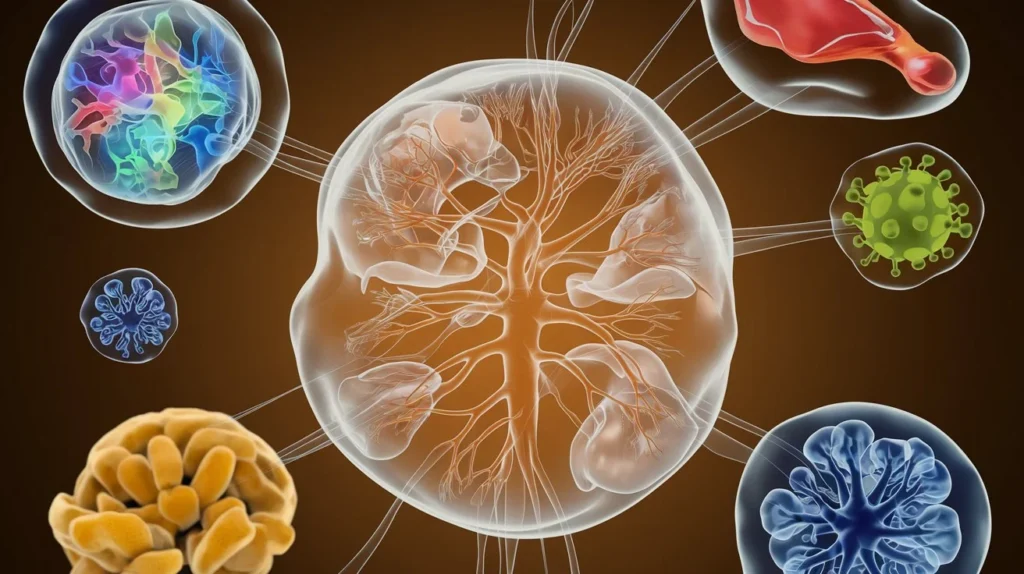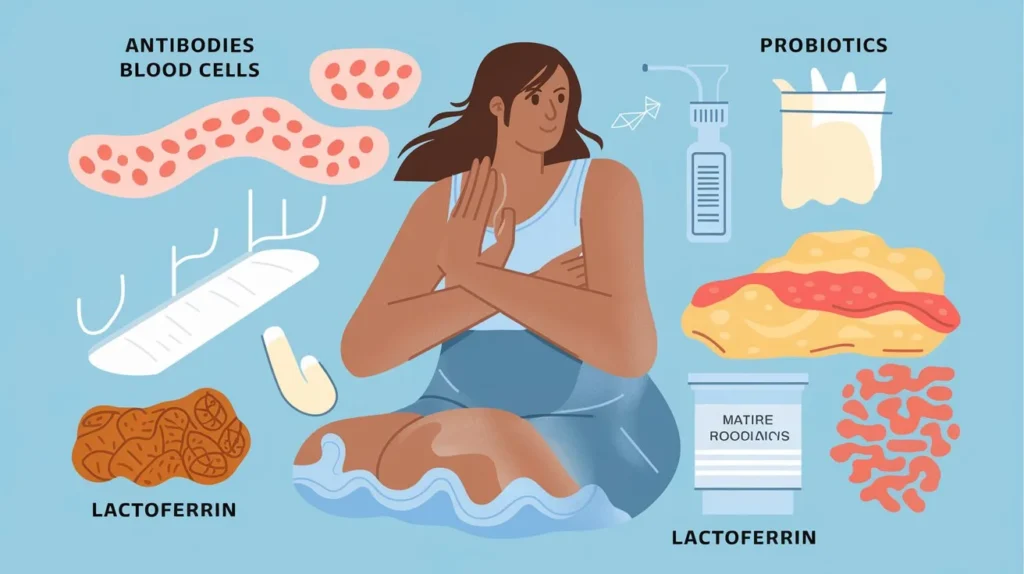How Breastfeeding Supports Immunity in Babies: A Comprehensive Guide
Table of Contents
Breastfeeding is more than a bonding experience between you and your baby. It plays a fundamental role in strengthening your child’s immune system, equipping them with the tools to fend off infections and fostering lifelong health benefits. While formula provides necessary nutrition, breast milk contains unique antibodies, enzymes, and bioactive components that can’t be duplicated. If you’re looking to understand exactly how breastfeeding helps support a baby’s immune defenses, this guide delves into the science and highlights the ways in which breast milk is a protective force.

The Composition of Breast Milk: Nature’s Immunity Boost
Breast milk is a biologically complex fluid that adapts to your baby’s specific needs. Understanding what it contains is essential for appreciating how it promotes immune health.
| Component | Functionality |
|---|---|
| Antibodies | Fights pathogens; most notably IgA, which lines the gut and respiratory tract to block invaders. |
| White Blood Cells | Directly combats infections by destroying bacteria and viruses. |
| Lactoferrin | Inhibits the growth of harmful bacteria and helps with iron absorption. |
| Oligosaccharides | Promotes good gut bacteria and prevents harmful pathogens from binding to the intestinal wall. |
| Probiotics | Supports healthy gut microbiota and strengthens immune function. |
| Growth Factors | Aids tissue repair and reduces inflammation. |

Colostrum: The First Immunity Kickstart
During the first few days after birth, your body produces colostrum—a thick, yellowish milk filled with high concentrations of antibodies and white blood cells. Colostrum helps build a newborn’s immunity while creating a protective layer in the baby’s digestive tract, which is critical for newborns who are more susceptible to infections.
The Gut-Immunity Connection: Why Breast Milk Matters
Around 70% of the immune system resides in the gut, making digestive health essential to overall immune strength. Breast milk supports the development of a baby’s gut microbiome in several unique ways.
- Probiotics and Prebiotics: Breast milk delivers natural probiotics and prebiotics, encouraging the growth of beneficial bacteria, such as Lactobacillus and Bifidobacterium, which outcompete harmful bacteria.
- Anti-Inflammatory Properties: Breast milk’s components have been shown to reduce inflammation, helping infants avoid conditions like colitis and other inflammatory diseases.
- Oligosaccharides in Action: The oligosaccharides in breast milk not only serve as food for good bacteria but also act as a decoy, preventing harmful pathogens from binding to the gut wall.
Breastfeeding and Disease Prevention: Short and Long-Term Benefits
Breastfeeding has been shown to reduce the risk of numerous infections and diseases both in infancy and later in life. Here’s a closer look at some of these protective benefits:
| Disease/Condition | Reduced Risk | Evidence |
|---|---|---|
| Ear Infections | 50% less in breastfed infants | Studies reveal that antibodies in breast milk fight ear infections. |
| Respiratory Tract Infections | 64% lower risk | Breast milk protects the lining of respiratory tissues. |
| Gastrointestinal Infections | 53% less likely | Probiotics and antibodies help prevent intestinal infections. |
| Obesity | 20-30% lower risk | Helps regulate metabolism and reduce obesity risk later in life. |
| Diabetes | Reduced in adolescence and adulthood | Early breastfeeding supports healthy blood sugar regulation. |

How Breastfeeding Strengthens the Immune Response
- Adaptive Immunity through Antibodies: Breastfeeding allows for the transfer of maternal antibodies (primarily IgA) that line and protect the baby’s mucosal surfaces. These antibodies are specific to the pathogens that the mother has been exposed to, offering a tailored defense.
- White Blood Cells and Active Immunity: Breast milk contains live white blood cells that actively attack infections in the baby’s system. Macrophages, one of the white blood cells, can digest foreign particles and provide a layer of active immunity.
- Protection Against Allergies and Autoimmune Disorders: Studies show that breastfeeding may lower the likelihood of autoimmune diseases, allergies, and asthma. This is because breast milk supports the immune system’s ability to distinguish between “self” and “foreign” agents, reducing the risk of abnormal immune responses.
Frequently Asked Questions
1. How long should I breastfeed to ensure immunity benefits?
For maximum immune benefits, exclusive breastfeeding is recommended for the first six months. However, even partial breastfeeding beyond that period provides significant immune support, with studies suggesting protective benefits lasting up to two years or more.
2. Can formula provide similar immunity support?
While formula contains essential nutrients, it lacks the live antibodies, enzymes, and customized immune components that only breast milk can provide.
3. How does breastfeeding impact vaccination effectiveness?
Breastfeeding enhances the immune response to vaccines by supporting the development of a more robust, antibody-rich response, especially for vaccines targeting respiratory and gastrointestinal infections.
4. Does breastfeeding affect a mother’s immunity?
Yes, breastfeeding stimulates immune responses in the mother, helping to protect against infections and lowering the risk of certain diseases, including breast cancer and osteoporosis.
Future Implications: Breastfeeding’s Impact on Lifelong Immunity
Researchers continue to uncover how the immune benefits of breastfeeding extend beyond childhood. Some studies indicate that breastfeeding is associated with reduced risks of chronic diseases such as heart disease and certain cancers later in life. This link to lifelong immunity may be influenced by the early development of the immune system, driven by breastfeeding’s unique components.
A Practical Guide to Supporting Your Breastfeeding Journey
Breastfeeding can be challenging, and it’s essential to have support. Here are a few tips to help ease the process:
- Stay Hydrated and Maintain a Balanced Diet: Proper nutrition ensures you are producing high-quality milk.
- Seek Support: Joining a breastfeeding support group or consulting a lactation expert can help overcome challenges.
- Take Advantage of Skin-to-Skin Contact: Holding your baby close helps stimulate milk production and fosters bonding.
- Relaxation Techniques: Stress reduction through breathing exercises or meditation can positively impact milk flow and quality.
Call to Action
If you’re considering breastfeeding or currently on that journey, remember that it’s a personal experience. With its immune-boosting qualities and profound impact on lifelong health, breastfeeding offers more than just nourishment—it’s a shield of protection. Embrace this journey, seek support when needed, and know that every effort you make is helping to lay a strong foundation for your child’s health.
References
- The Science of Human Milk, Journal of Pediatrics, 2022.
- Breastfeeding and Long-Term Immunity, American Journal of Immunology, 2023.
- The Impact of Breastfeeding on Childhood Infections, World Health Organization (WHO), 2022.
- Maternal Immunity Transfer through Breast Milk, National Institutes of Health (NIH), 2021.







